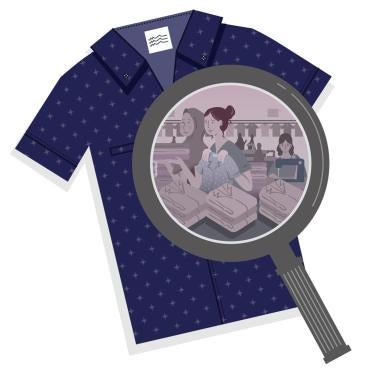(New York) – Women track and field athletes will be subjected to tight surveillance based on gender stereotypes under a new set of global regulations, the latest in a series of arbitrary and increasingly restrictive policies, Human Rights Watch said today.
World Athletics, the international body governing athletics competitions, approved a new version of its “Eligibility Regulations for the Female Classification” on March 23, 2023. The new rules, which go into force on March 31, require women with higher than typical testosterone, and certain diagnoses of variations in their sex characteristics and hormonal sensitivity to go through medical procedures to reduce their testosterone levels to 2.5 nanomoles/liter for 24 months to be eligible to compete as women in any athletics event. These regulations are not based on any new scientific studies and have no apparent objective basis.
“Just like previous versions, these new regulations will coerce women to undergo unnecessary medical intervention to alter their hormone levels simply because their naturally occurring testosterone is atypical,” said Minky Worden, director of global initiatives at Human Rights Watch. “Surveilling, stigmatizing, and stereotyping are intrinsic to these sex testing regulations.”
The tightening of World Athletics “DSD” policy – referring to the medical term “Differences of Sex Development” – effectively forces more medically unnecessary and often harmful interventions on perfectly healthy athletes as a condition for competing, Human Rights Watch said. It also expands a system of surveillance over the bodies of all women athletes.
Human Rights Watch research found past iterations of the same regulations encouraged abusive sex testing, discrimination, surveillance, and coerced medical intervention on women athletes, resulting in physical and psychological injury and economic hardship. Women perceived to be “too masculine” may become targets of suspicion and gossip and may be forced to end their athletic careers prematurely. The standards of femininity applied are often deeply racially biased, research has found.
There is no scientific consensus that women with naturally higher testosterone have a performance advantage in all sports. Athletes’ bodies exhibit a range of advantageous traits, some of them linked to sex characteristics, but certainly not all. Despite a wide range of testosterone levels among men, there have never been analogous regulations for male athletes.
Previous versions of these same World Athletics regulations, which allowed for a higher testosterone level and were only applied to certain events, are currently being challenged in the European Court of Human Rights by the South African runner Caster Semenya.
At a news conference announcing the new regulations, World Athletics President Sebastian Coe told reporters that under the new regulations, 13 women who were currently planning to compete in the August 2023 World Championships would become ineligible.
The fact that World Athletics can point to 13 currently competing athletes and know they will be ineligible speaks to the extent of surveillance on all women athletes’ bodies already happening under the current regulations, which is likely to get worse under the new regulations, Human Rights Watch said.
Throughout the history of sex testing, sports regulators have caused harm to women athletes. In 1985, the International Olympic Committee (IOC) disqualified a Spanish hurdler, Maria José Martínez-Patiño, after officials subjected her to sex testing using chromosomal tests. The officials deemed her “chromosomally male” and barred her from competition. Her test results were leaked to the media.
Following that controversy, the IOC began testing for what is called the “testis development,” or SRY gene, the idea being that this was the key to screen “sexually ambiguous” athletes from the women’s category. Using this test, officials classified some women as men, including eight women in the 1996 Atlanta Olympics.
Then, following pressure from medical organizations and the Olympics’ Athletes’ Commission, the IOC decided to stop mandatory sex testing of all women, though some federations continued the practice based on suspicion – that is, testing women they thought might not pass a sex test.
Suspicion-based testing is inherent in the World Athletics regulations, which have resulted in profiling and targeting women according to gender stereotypes. Women perceived to be too “masculine” may become targets of suspicion, stigma, and whisper campaigns with detrimental effects.
The underlying stereotypes that drive targeting are deeply racialized. Under the veneer of scientific legitimacy, some women are ensnared in abusive and medically unnecessary tests and exams. These are overwhelmingly women of color from Africa and South Asia. The result can be exclusion from competitive athletics and the elimination of their livelihoods.
The then-United Nations high commissioner for human rights, Michelle Bachelet, warned in her 2020 report: “History demonstrates that, because these regulations are applied in hundreds of countries, among many actors, it is impossible to guarantee privacy.”
In 2021, the IOC passed a “Framework on Fairness, Inclusion, and Non-Discrimination on the Basis of Gender Identity and Sex Variations” following a years-long process, including consultations with affected athletes. The framework called on individual sporting federations to undertake a process to determine their own policies and gave strong human rights guidance.
The IOC said that “Criteria to determine disproportionate competitive advantage may, at times, require testing an athlete’s performance and physical capacity. However, no athlete should be subject to targeted testing of, or aimed at determining, their sex, gender identity, and/or sex variations.”
“The World Athletics regulations amount to policing women’s bodies based on arbitrary definitions of femininity,” Worden said. “What we have now is a system that is subjecting all women athletes’ bodies to surveillance. Identifying relevant athletes through observation and suspicion creates a situation in which women athletes’ bodies are scrutinized, while no such scrutiny is applied to men.”









